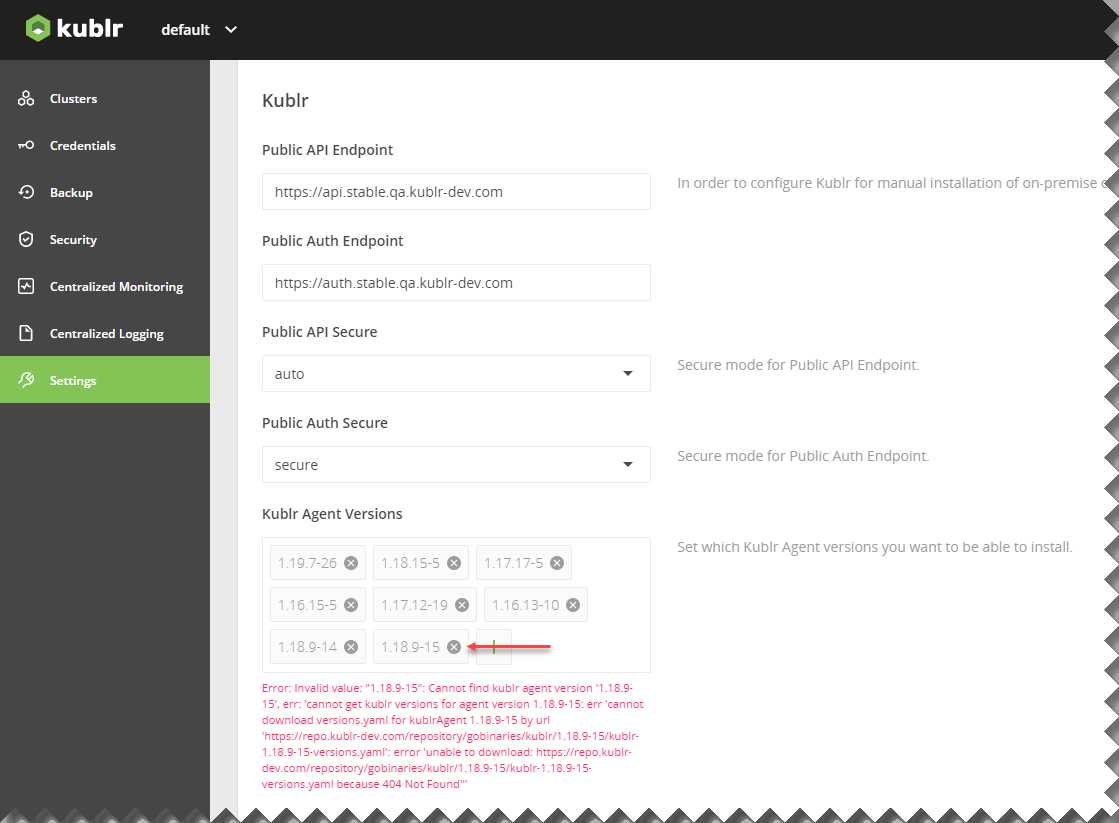Below you can find descriptions for general settings, used by all clusters and platforms or by some of them depending on the Provider being used. These settings are specified on the special Settings page, availale on the left menu.

| Used by clusters and platforms: | |
|---|---|
| Provider | On-Premises, manual installation |
In order to configure kublr for manual installation of on-premises clusters, you need to provide:
You can also set a secure mode for the API and Auth endpoints, possible modes are:
| Used by clusters and platforms: | |
|---|---|
| Provider | All |
When creating clusters, you need to set the Kubernetes Version parameter for it (should be selected from the list). This parameter is in correspondence with the Kublr Agent Versions.
Sometimes, you may have a specific version of Kublr (for example, prepared specifically for you by the Kublr team) and corresponding Kubernetes Version is not in the list by default. If so, obtain the version number of Kublr agent from Kublr support and enter it into the system as described below:
In the Kublr Agent Versions, add required agent version.

Click Save Changes.
The system will automatically detect the Kubernetes Version which corresponds to entered Kublr Agent version and it will be added to the list.
Note that the parameter is validated: if the added agent version is not presented in repository, the error message is displayed:

| Used by clusters and platforms: | |
|---|---|
| Provider | All |
Use Google Analytics and Intercom to send user experience feedback automatically.
Multiple UI Languages
You can allow users to switch between Kublr user interface languages. The English language is used by default if you disable the option, and during the first log in - on next login, previously selected language will be used.
Available Languages
Set which languages you want users to be able to select. For now, available languages are English (en) and Russian (ru).
| Used by clusters and platforms: | |
|---|---|
| Provider | All |
Upgrade Checking
You can set system to automatically check if upgrades for the deployed features of your cluster(s) are available.
Upgrade Check Interval
Set how often the availability of upgrades should be checked. The default value is 24 hours. Input examples: 1d, 2h, 1h15m.